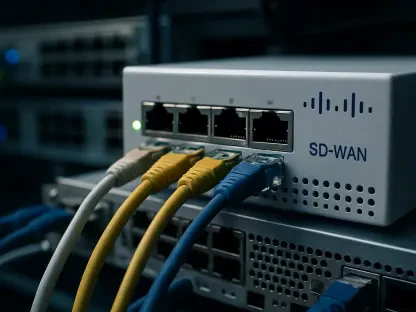In the intricate landscape of health research, particularly within regions facing systemic challenges like West Africa, the role of networking emerges as a transformative force capable of bridging critical gaps in capacity and resources, thereby fostering significant advancements. Across low- and middle-income countries (LMICs), where health systems often struggle to meet population needs due to limited funding, inadequate training, and fragmented infrastructure, collaborative networks offer a lifeline for researchers, policymakers, and practitioners. These connections facilitate the exchange of knowledge, foster peer support, and enable partnerships that can amplify the impact of Health Policy and Systems Research (HPSR). In West Africa, where health challenges are compounded by linguistic divides and uneven development, initiatives like the West African Network of Emerging Leaders in Health Policy and Systems Research (WANEL) exemplify the potential of networking to drive systemic change. By uniting diverse professionals across borders, such networks aim to strengthen evidence-based decision-making and address shared regional issues. This exploration delves into the mechanisms through which networking shapes health research, focusing on WANEL’s structural and relational dynamics to uncover broader lessons about the power of connectivity in fostering innovation and capacity-building within the region’s health systems.
Building Capacity Through Collaborative Networks
The significance of networking in bolstering HPSR capacity in West Africa cannot be overstated, especially in a context where individual efforts often falter due to systemic constraints. Collaborative platforms create vital opportunities for knowledge exchange, allowing researchers to tap into a wealth of diverse experiences and expertise that might otherwise remain inaccessible. This interaction is particularly crucial in a region where health challenges, ranging from infectious diseases to policy implementation gaps, demand multifaceted solutions. Networks serve as conduits for sharing best practices and innovative approaches, enabling members to adapt strategies that have proven effective in similar settings. Beyond mere information sharing, these connections help overcome persistent barriers such as limited access to funding by encouraging the pooling of resources and collective advocacy for grants or institutional support. For many in West Africa, where research often operates in silos due to geographic and institutional divides, networking lays the groundwork for a more unified approach to tackling pressing health system issues, ensuring that efforts are not duplicated but rather amplified through collaboration.
For early-career researchers, the benefits of networking extend even further, providing essential mentorship and visibility in a field that can often feel daunting and competitive. Guidance from seasoned professionals within a network offers not only technical insights but also career navigation strategies, helping newcomers establish themselves in the HPSR landscape. Additionally, networks enable cross-disciplinary dialogue, blending perspectives from medicine, public policy, and social sciences to create richer, more comprehensive research outcomes. In West Africa, where health issues are deeply intertwined with socioeconomic factors, such integration is indispensable for crafting impactful interventions. By fostering trust and shared objectives, networking can significantly enhance the influence of HPSR on health system reforms, ensuring that evidence informs policy in meaningful ways. This collective approach also counters the fragmentation seen across different countries and linguistic groups, creating a community of practice that prioritizes systemic improvement over isolated achievements, ultimately driving progress in regional health research.
WANEL as a Catalyst for Regional HPSR Growth
Established to unite emerging leaders in HPSR, WANEL represents a pioneering effort to enhance research capacity across West Africa through structured collaboration. Comprising 103 members from 11 of the 15 West African countries, the network brings together a diverse array of professionals, including researchers, medical practitioners, and policy advocates, spanning early-career to senior levels. Its mission centers on building capacity through peer learning and cross-country partnerships, addressing the region’s shared health challenges by connecting individuals across borders. WANEL’s vision aligns closely with systemic capacity-building frameworks that emphasize synergies at individual, organizational, and network levels to maximize impact. By cultivating a platform where diverse voices can converge, the network seeks to create a unified front for advancing HPSR, ensuring that evidence generation and application are not confined to national boundaries but are instead regionally integrated for greater effectiveness.
The diversity within WANEL’s membership offers a rich foundation for innovation and knowledge sharing, positioning it as a potential hub for transformative health research. Representing a mix of disciplines and professional backgrounds, members bring unique perspectives that can inspire novel approaches to persistent health system challenges. The network’s cross-country design further enhances its value, facilitating dialogue between contexts that, while distinct, often face similar obstacles such as resource scarcity and policy gaps. However, realizing this potential hinges on how effectively WANEL operates in practice, as structural and relational dynamics play a critical role in determining its success. The ability to foster meaningful interactions and ensure equitable participation across its diverse base is paramount. As a regional initiative, WANEL stands as a test case for how networking can bridge divides and catalyze growth in HPSR, offering insights that could inform similar efforts in other LMICs striving to strengthen their health research ecosystems.
Analyzing the Structural Framework of WANEL
A deeper examination of WANEL’s connectivity, conducted through Social Network Analysis (SNA), provides critical insights into its structural strengths and limitations as a capacity-building platform. Key metrics such as density and centralization paint a picture of the network’s overall cohesion and interaction patterns. Findings indicate low cohesion, with many members lacking strong connections to one another, which restricts the free flow of information and resources. High centralization further compounds this issue, as influence and opportunities are often concentrated among a small group of individuals who dominate communication channels. This bottleneck effect limits widespread access to support and collaborative prospects, particularly for those not already embedded in the network’s core. Such a structure poses significant challenges to WANEL’s goal of fostering a vibrant, inclusive research community where all members can contribute to and benefit from collective efforts in HPSR development.
Sparse interactions, especially in areas like mentorship and advice, further hinder the network’s ability to facilitate peer learning, a cornerstone of capacity-building in health research. Communication within WANEL often falls below the threshold considered effective for knowledge sharing in networks of comparable size, meaning that many potential synergies remain untapped. Additionally, a significant portion of relationships within the network are rooted in pre-existing ties rather than new connections formed through WANEL’s activities, which limits the creation of fresh collaborative pathways. These structural gaps underscore the need for strategic interventions to enhance connectivity and ensure that the network functions as a dynamic space for exchange. Addressing these challenges is essential if WANEL is to fulfill its mission of driving systemic change in West African health research, as the current framework risks perpetuating isolation rather than fostering integration among its members.
Exploring Relational Dynamics and Support Systems
Within WANEL, the nature of relationships—ranging from communication to advice and research collaboration—plays a pivotal role in shaping its effectiveness as a support system for HPSR actors. While the network has succeeded in raising awareness across countries and fostering a degree of cross-professional interaction, meaningful engagements remain limited in scope. Many members tend to gravitate toward familiar linguistic or professional circles for support, creating clusters that, while comfortable, restrict broader collaboration. This uneven distribution of opportunities means that not all participants benefit equally from the network’s resources, with some remaining on the periphery despite their potential contributions. Such relational patterns highlight a critical gap in WANEL’s ability to build a cohesive community where diverse expertise and experiences are fully leveraged to address regional health challenges through informed research and policy advocacy.
The impact of these relational shortcomings is particularly pronounced for early-career researchers, who often find themselves disconnected from the guidance and mentorship that could propel their growth in the HPSR field. Senior members, who possess valuable experience and insights, sometimes remain isolated from the broader group, missing opportunities to share knowledge with those who need it most. Even cross-disciplinary exchanges, though present to some extent, lack the depth and frequency needed to drive truly innovative outcomes. These gaps in relational dynamics undermine WANEL’s capacity to foster a genuine sense of community among its members, limiting the network’s overall impact. Strengthening ties across diverse groups and ensuring equitable access to support are vital steps toward maximizing the benefits of networking, as without such efforts, many participants will continue to miss out on the transformative potential of collaborative engagement in health research.
Addressing Power Imbalances and Promoting Inclusivity
Power dynamics within WANEL present substantial barriers to achieving equitable participation and harnessing the full potential of its diverse membership in advancing HPSR. Influence within the network is frequently concentrated among a small cohort, predominantly from English-speaking countries such as Nigeria and Ghana, which together represent a significant portion of the membership. This centralization of power creates informal hierarchies that can marginalize other voices, particularly those from less represented areas. French-speaking members, for instance, face systemic obstacles including fewer training programs and limited access to funding, compounded by linguistic barriers that hinder their integration. Over time, their representation in WANEL has diminished, reflecting deeper inequities in West Africa’s research landscape that the network must confront to maintain its commitment to fairness and mutual respect.
The consequences of these imbalances extend beyond mere representation, affecting the ability of early-career and peripheral members to gain visibility and access critical resources for their work. Without intentional efforts to decentralize influence, the network risks perpetuating disparities that undermine its foundational principles. Addressing these power imbalances requires targeted strategies, such as promoting distributed leadership and creating structured opportunities for underrepresented groups to engage meaningfully. Inclusivity must be prioritized to ensure that all voices, regardless of linguistic or geographic background, contribute to shaping the direction of health research in West Africa. By fostering an environment where diverse perspectives are valued and supported, WANEL can transform into a more equitable platform, better equipped to drive systemic improvements in HPSR and address the region’s complex health challenges through collaborative innovation.
Pathways Forward for Strengthening Health Research Networks
Reflecting on the journey of WANEL, it becomes evident that while the network made strides in connecting diverse HPSR actors across West Africa, significant structural and relational hurdles impeded its full potential. The low cohesion and high centralization observed in its framework restricted the flow of knowledge and opportunities, often leaving many members isolated from the benefits of collaboration. Power imbalances, particularly the underrepresentation of French-speaking participants, mirrored broader systemic inequities that challenged the network’s inclusivity. These insights, drawn from meticulous analysis, underscored the complexities of building effective regional networks in a context marked by linguistic and resource disparities. The efforts to map these dynamics provided a crucial foundation for understanding how connectivity could be better harnessed to support health research capacity in the region.
Looking ahead, actionable strategies must be prioritized to enhance the effectiveness of networks like WANEL in driving HPSR forward. Investing in relational infrastructure, such as regular cross-linguistic workshops and automated systems for membership engagement, can build trust and facilitate stronger ties among members. Structured mentorship programs should be implemented to ensure early-career researchers gain access to guidance, while distributed leadership models can help decentralize influence and integrate peripheral actors. Targeted initiatives to support French-speaking members, including language assistance for funding applications, are essential for fostering inclusivity. By embracing these approaches, future networks can evolve into resilient communities that not only bridge gaps in capacity but also inspire innovative solutions to West Africa’s health challenges, ensuring that collaborative efforts translate into tangible systemic impact.









